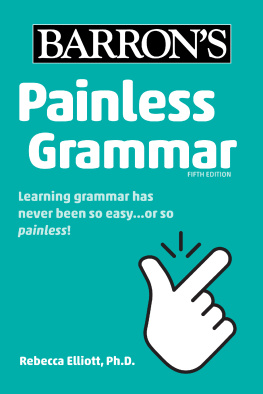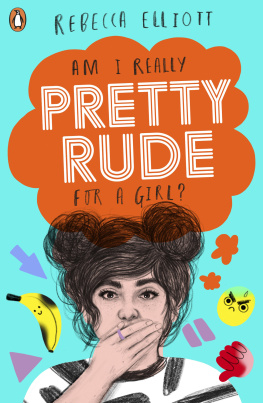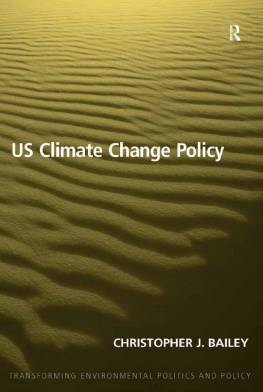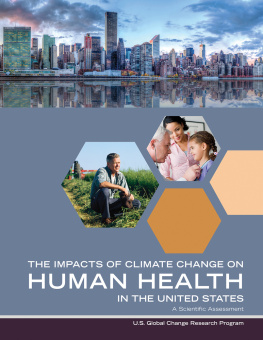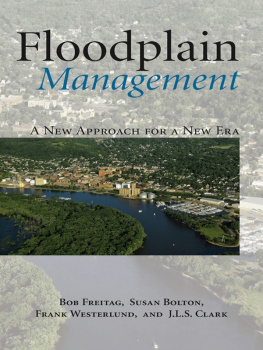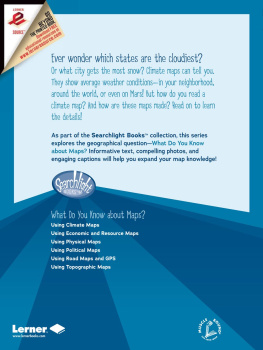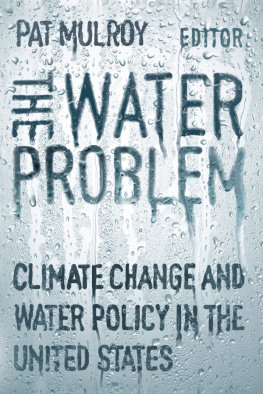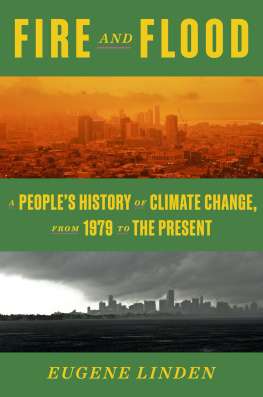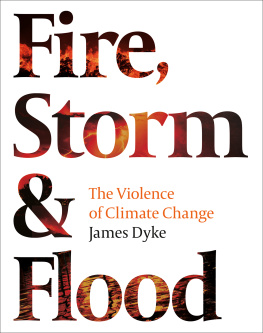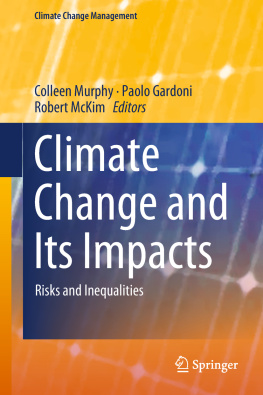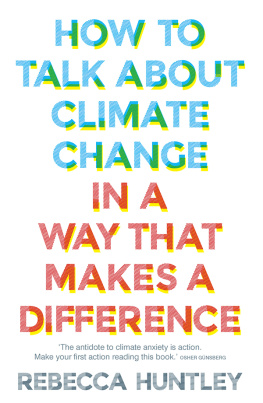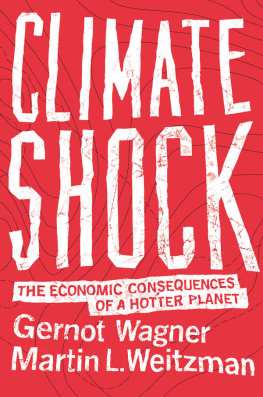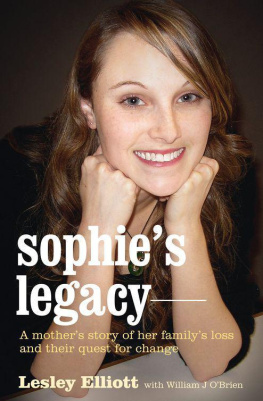Rebecca Elliott - Underwater: Loss, Flood Insurance, and the Moral Economy of Climate Change in the United States
Here you can read online Rebecca Elliott - Underwater: Loss, Flood Insurance, and the Moral Economy of Climate Change in the United States full text of the book (entire story) in english for free. Download pdf and epub, get meaning, cover and reviews about this ebook. year: 2021, publisher: Columbia University Press, genre: Politics. Description of the work, (preface) as well as reviews are available. Best literature library LitArk.com created for fans of good reading and offers a wide selection of genres:
Romance novel
Science fiction
Adventure
Detective
Science
History
Home and family
Prose
Art
Politics
Computer
Non-fiction
Religion
Business
Children
Humor
Choose a favorite category and find really read worthwhile books. Enjoy immersion in the world of imagination, feel the emotions of the characters or learn something new for yourself, make an fascinating discovery.

- Book:Underwater: Loss, Flood Insurance, and the Moral Economy of Climate Change in the United States
- Author:
- Publisher:Columbia University Press
- Genre:
- Year:2021
- Rating:5 / 5
- Favourites:Add to favourites
- Your mark:
- 100
- 1
- 2
- 3
- 4
- 5
Underwater: Loss, Flood Insurance, and the Moral Economy of Climate Change in the United States: summary, description and annotation
We offer to read an annotation, description, summary or preface (depends on what the author of the book "Underwater: Loss, Flood Insurance, and the Moral Economy of Climate Change in the United States" wrote himself). If you haven't found the necessary information about the book — write in the comments, we will try to find it.
Underwater: Loss, Flood Insurance, and the Moral Economy of Climate Change in the United States — read online for free the complete book (whole text) full work
Below is the text of the book, divided by pages. System saving the place of the last page read, allows you to conveniently read the book "Underwater: Loss, Flood Insurance, and the Moral Economy of Climate Change in the United States" online for free, without having to search again every time where you left off. Put a bookmark, and you can go to the page where you finished reading at any time.
Font size:
Interval:
Bookmark:
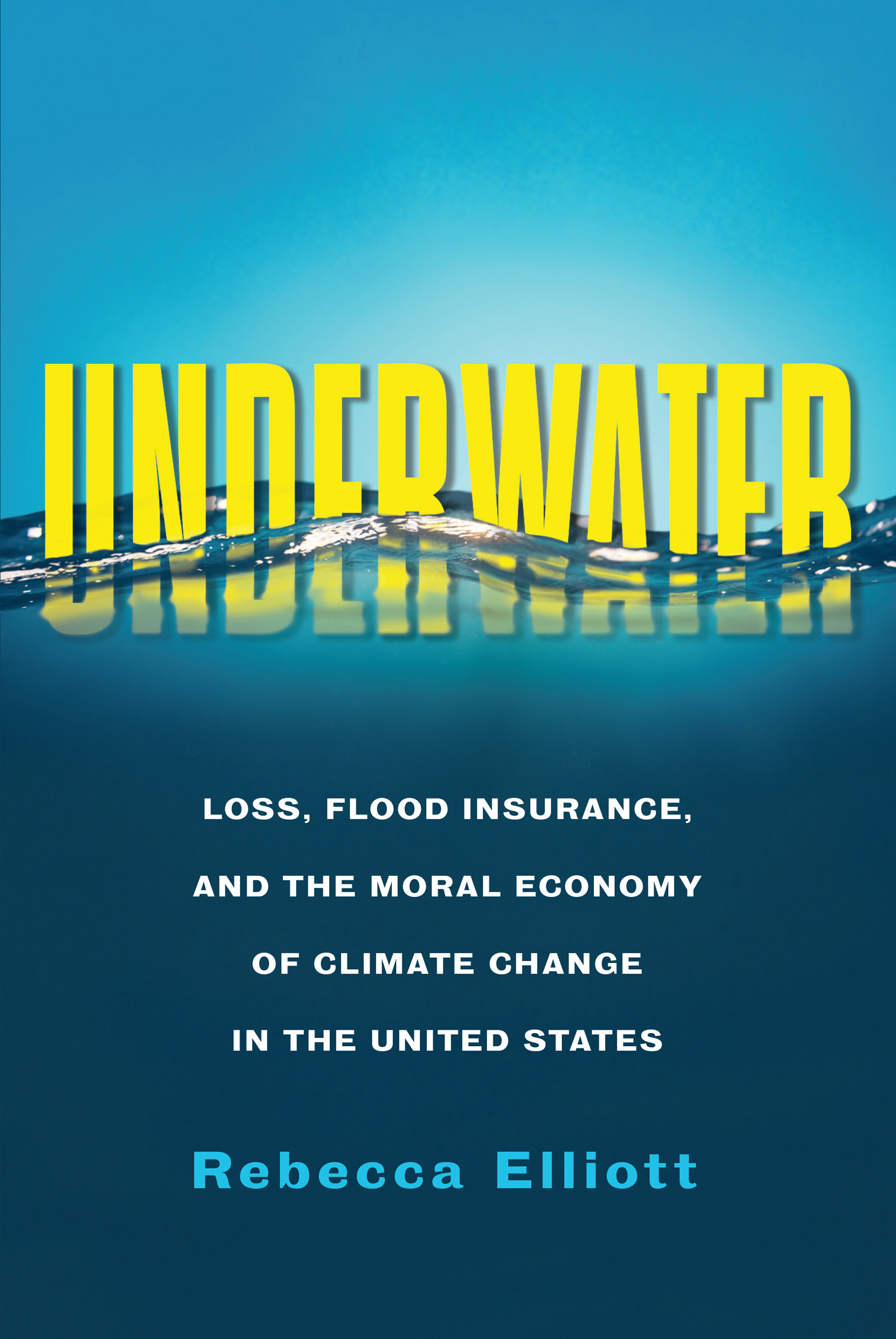
UNDERWATER
SOCIETY AND THE ENVIRONMENT
SOCIETY AND THE ENVIRONMENT
The impact of humans on the natural environment is one of the most pressing issues of the twenty-first century. Key topics of concern include mounting natural resource pressures, accelerating environmental degradation, and the rising frequency and intensity of disasters. Governmental and nongovernmental actors have responded to these challenges through increasing environmental action and advocacy, expanding the scope of environmental policy and governance, and encouraging the development of the so-called green economy. Society and the Environment encompasses a range of social science research, aiming to unify perspectives and advance scholarship. Books in the series focus on cutting-edge global issues at the nexus of society and the environment.
Series Editors
Dana R. Fisher
Lori Peek
Evan Schofer
Super Polluters: Tackling the Worlds Largest Sources of Climate-Disrupting Emissions, Don Grant, Andrew Jorgenson, and Wesley Longhofer
Underwater
LOSS, FLOOD INSURANCE, AND THE MORAL ECONOMY OF CLIMATE CHANGE IN THE UNITED STATES

Rebecca Elliott

Columbia University Press
New York
Columbia University Press
Publishers Since 1893
New YorkChichester, West Sussex
cup.columbia.edu
Copyright 2021 Rebecca Elliott
All rights reserved
E-ISBN 978-0-231-54881-6
Library of Congress Cataloging-in-Publication Data
Names: Elliott, Rebecca, 1984 author.
Title: Underwater : loss, flood insurance, and the moral economy of climate change in the United States / Rebecca Elliott.
Description: New York : Columbia University Press, [2021] | Series: Society and the environment | Includes bibliographical references and index.
Identifiers: LCCN 2020020518 (print) | LCCN 2020020519 (ebook) | ISBN 9780231190268 (hardback) | ISBN 9780231190275 (trade paperback)
Subjects: LCSH: National Flood Insurance Program (U.S.) | Flood insuranceGovernment policyUnited States. | Flood insuranceSocial aspectsUnited States. | Flood insuranceMoral and ethical aspectsUnited States. | Flood damageEconomic aspectsUnited States. | Flood damageSocial aspectsUnited States. | Liability for environmental damagesUnited States. | Climatic changesEconomic aspectsUnited States.
Classification: LCC HG9983.3 .E54 2021 (print) | LCC HG9983.3 (ebook) | DDC 368.1/22200973dc23
LC record available at https://lccn.loc.gov/2020020518
LC ebook record available at https://lccn.loc.gov/2020020519
A Columbia University Press E-book.
CUP would be pleased to hear about your reading experience with this e-book at .
Cover design: Julia Kushnirsky
Cover photo: iStockphoto
Writing a book is in many ways an unavoidably solitary task, but for me it has not been a lonely one. Any faults you may find with the book are my responsibility, but my work has benefited immeasurably from the assistance, support, feedback, and patience of so many people, and finishing this book gives me the opportunity to thank them.
First, I owe my deepest gratitude to the many people in New York City, New Jersey, Washington, DC, and elsewhere, who shared their stories, expertise, opinions, and feelings as I pursued answers to my research questions. I thank them for their time, candor, and trust. To those I met who were recovering from Hurricane Sandy, I am so humbled and grateful for the invitations into your homes. Even though those homes may not have lived up to your standards, or yet felt presentable for guests, they were spaces of such kindness and care to me. I owe special thanks to Joseph Pupello and David Gaul of Zone A New York, Amy Bach of United Policyholders, and Carolyn Nagy and Matthew Hassett of the Center for New York City Neighborhoods, who invited me to turn my research findings into materials that might help Hurricane Sandyaffected residents, exposing me to the power and importance of public sociology. I also thank Katherine Greig, with the New York City Mayors Office of Recovery and Resiliency, who was always keen to share ideas and to discuss really complex questions about the future of New York City.
This book began as my PhD dissertation at the University of California, Berkeley. There I benefited from the tremendous intellectual firepower of my faculty advisors and fellow graduate students. Marion Fourcade provided indispensable guidance and encouragement as not only the chair of my dissertation committee, but as a mentor through the entirety of graduate school and beyond. She showed incredible trust and patience when I would come into her office to riff about my semiformed ideas and she believed in the project, and in me, the whole way. My intellectual development generally, and this project specifically, have benefited enormously from her ability to be simultaneously demanding and kind. Neil Fligstein kept me tethered to the big questions when I went wading into the weeds of flood insurance history and administration, helping me always to think about the more broadly sociological significance of my research. I am grateful for his attention and interest. Cal Morrill taught me how to do qualitative research. He let fifteen-minute meetings stretch to take up the better part of an hour and provided careful feedback on drafts, which was precious to me. He helped me to distill my sprawling ideas, and his creativity inspired me at every turn. I always left his office excited to keep working. I am also grateful to Arlie Hochschild, who took me on as a research assistant on her own project about environmental peril, but who always took time out of our meetings to ask about how my work was going. Working for her was a master class in conducting and writing up research from a place of earnest curiosity and empathy. At Berkeley, I was also helped along through my participation in several workshops with faculty members and my fellow graduate students. Heather Haveman, Anne Swidler, and Cihan Tugal provided comments on work in progress, as well as valuable advice, in those settings. I am grateful to Alex Roehrkasse, Ben Shestakofsky, Roi Livne, Katherine Hood, Beth Pearson, Jonah Stuart Brundage, Jacob Habinek, Daniel Kluttz, Sarah Macdonald, Herbert Docena, Sunmin Kim, Gowri Vijayakumar, Carter Koppelman, Ryan Calder, Carlos Bustamante, Megan Peppel, Peter Ekman, and Caleb Scoville. All of them read and responded to early drafts, or listened to me present them, and they were wonderful friends to me besides.
If I left an intellectually supportive community behind at Berkeley, it was only to join another at the London School of Economics, where the project of writing this book began. I have been privileged to have as mentors Bridget Hutter and Nigel Dodd, who were excited about this book and gave me useful guidance as I worked on it. In our departmental writing group and in conversations over coffee, I received indispensable feedback and advice on the book proposal, chapter drafts, and revisions from Fabien Accominotti, Carrie Friese, Sam Friedman, Liene Ozolina-Fitzgerald, Monika Krause, Sara Salem, Jeremy Brice, Alexander Dobeson, Jonathan Mijs, Ioanna Gouseti, and Leon Wansleben, along with a fabulous crew of our PhD students. I have also learned by the example of my colleagues, as Ive engaged with their research and seen their own projects come to fruition. I am also thankful for the support Ive received from my affiliations with the LSEs Grantham Research Institute on Climate Change and the Environment, the LSE US Centre, and the Centre for the Analysis of Risk and Regulation. All of these research centers gave me opportunities to share my work in progress.
Font size:
Interval:
Bookmark:
Similar books «Underwater: Loss, Flood Insurance, and the Moral Economy of Climate Change in the United States»
Look at similar books to Underwater: Loss, Flood Insurance, and the Moral Economy of Climate Change in the United States. We have selected literature similar in name and meaning in the hope of providing readers with more options to find new, interesting, not yet read works.
Discussion, reviews of the book Underwater: Loss, Flood Insurance, and the Moral Economy of Climate Change in the United States and just readers' own opinions. Leave your comments, write what you think about the work, its meaning or the main characters. Specify what exactly you liked and what you didn't like, and why you think so.

